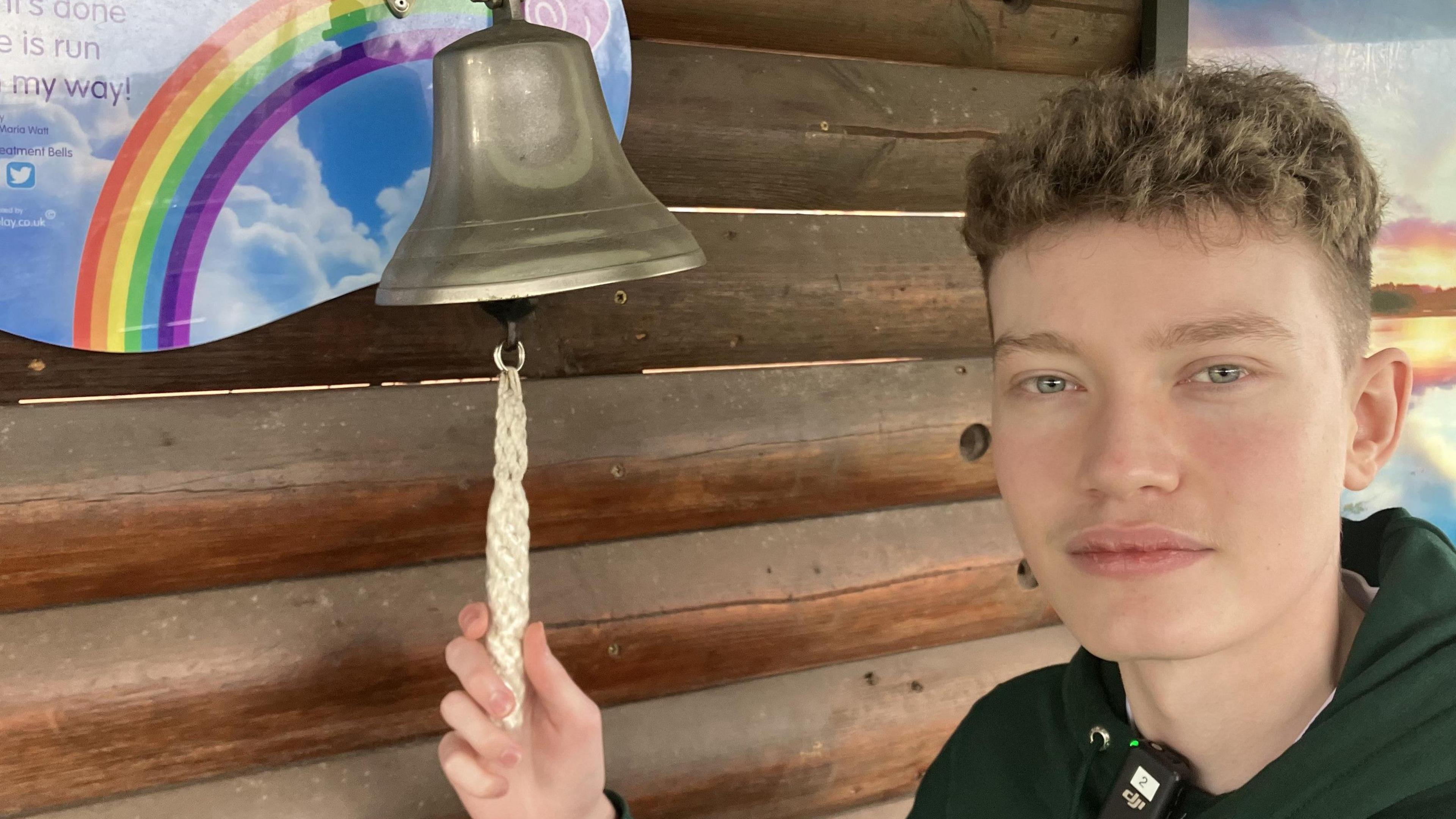Trial helps mother beat 'aggressive' blood cancer
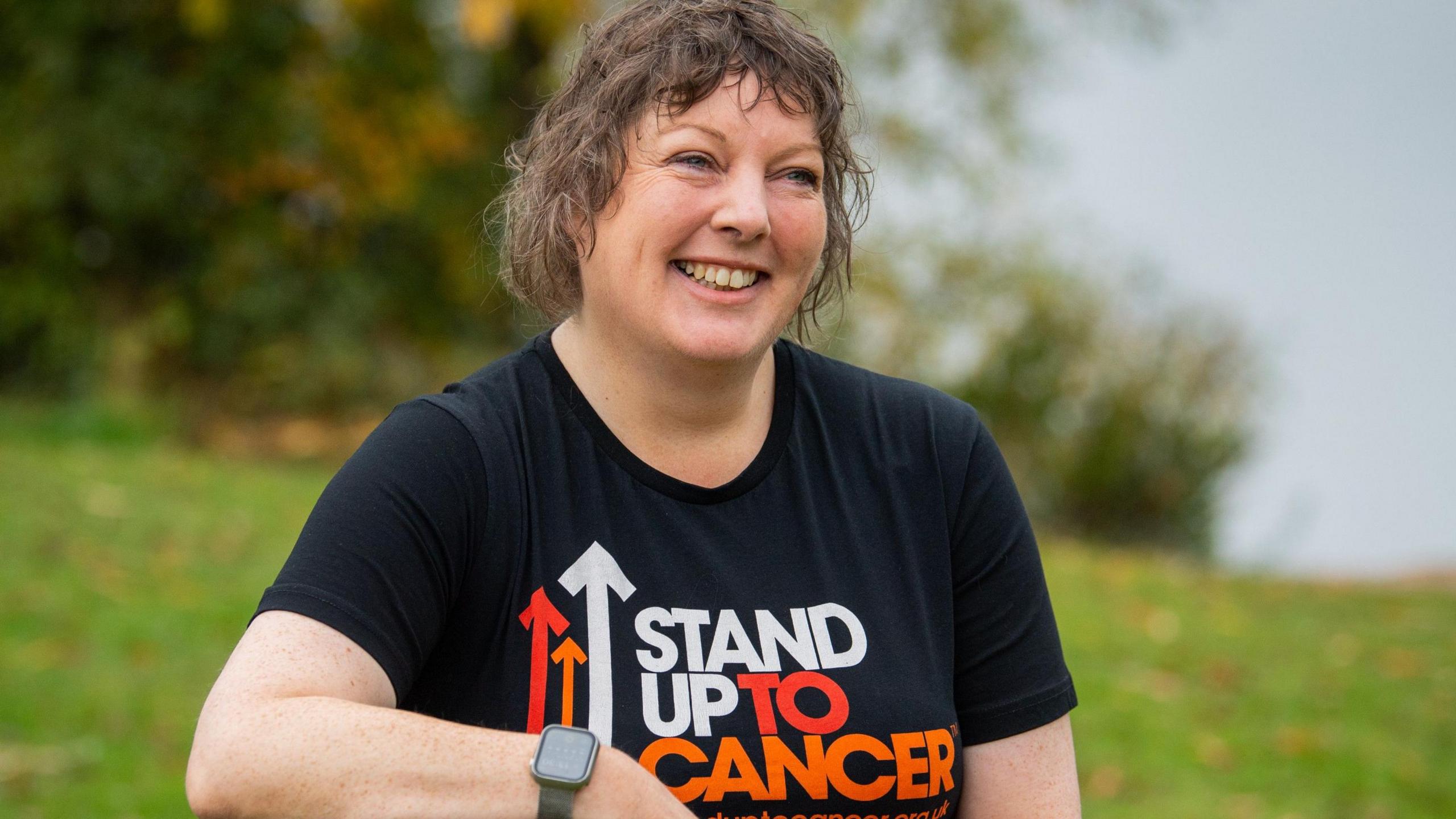
Caroline Palmer first noticed her symptoms in February 2023 and was diagnosed with lymphoma about three months later
- Published
"I can't die, I need to be here for my 10-year-old son, so we've got to sort this out."
This was Caroline Palmer's first thought after hearing she had been diagnosed with primary central nervous system lymphoma (PCNSL), external, an "aggressive" blood cancer affecting the spinal cord and brain, back in 2023.
According to Cancer Research UK, about 30% to 50% of patients who are offered the standard treatment for PCNSL do not survive.
However, Caroline, 50, is now in remission after she was the first person in the UK to take part in a clinical trial which combines chemotherapy drugs, immunotherapy treatment, and a stem cell transplant.
Caroline, from Coalville in Leicestershire, received her diagnosis after experiencing headaches, fatigue and unusual flashing lights, symptoms which she put down to perimenopause.
"When I was diagnosed, I was really scared because I thought I was going to die, and my first thought was for my son, who was just 10," she said.
"We'd waited a long time to become parents, and I just thought 'I can't die, I need to be here for him'.
"But then I was offered the OptiMATe clinical trial and it was a complete lifeline."
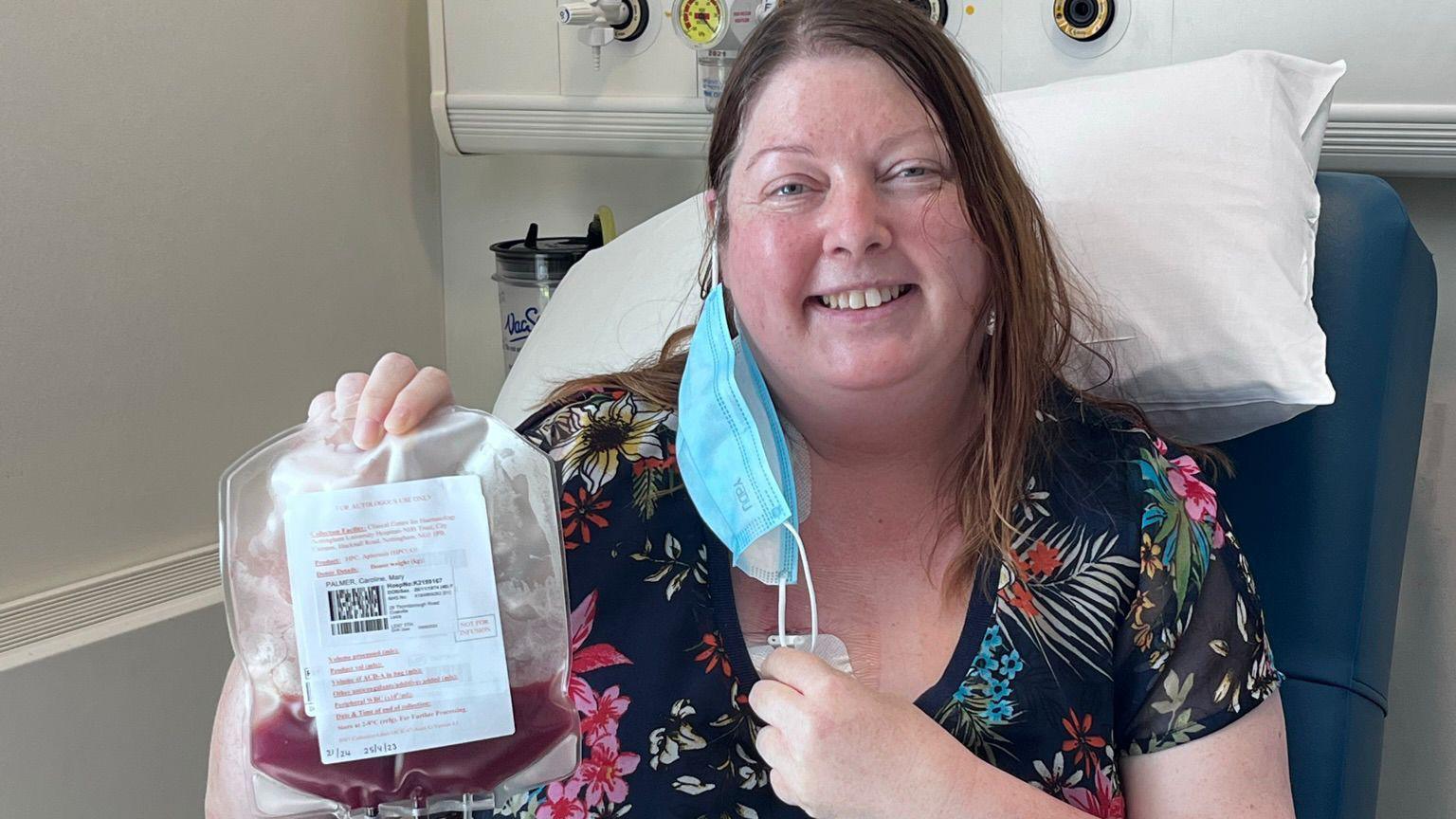
Caroline was the first person recruited within the UK for the OptiMATe clinical trial
The £1m trial, funded by Stand Up To Cancer, has been devised by researchers in Southampton and Nottingham.
Caroline said: "Now, thanks to the people who fundraise for Stand Up To Cancer, I'm here today watching my son grow up.
"I'm slowly returning to work as a teacher, helping to care for my brother who has early-onset dementia, and am feeling grateful every day that I'm alive."
An MRI scan in April 2023 revealed a lesion on Caroline's brain and she was sent to the Queen's Medical Centre (QMC) in Nottingham for a biopsy.
"When I came out of surgery, I was told I had lymphoma," she said.
"But even after hearing the news I was thinking 'it can't be that bad' and was telling myself 'it's just a bit of cancer'."
Caroline was transferred to a special haematology unit at Nottingham City Hospital, where she met Prof Chris Fox, who explained she would be spending a long time in hospital.
'Really challenging disease'
"I needed to tell my son before he heard it from anyone else," Caroline said.
"So I was allowed home for a night to break the news as simply as I could. I treated him to a McDonald's, and gently explained that I had something that was very hard to get rid of and that it could only be treated in hospital.
"I told him I wouldn't be able to see him for a while and ended up not seeing him for 40 days to reduce my risk of infection whilst going through the treatment."
Prof Fox, a consultant haematologist at Nottingham University Hospitals NHS Trust, is OptiMATe's chief investigator and told Caroline about the trial.
He told the BBC that PCNSL is "a really challenging disease" and an "aggressive blood cancer".
With about 330 patients taking part worldwide in the trial, he said it was one of the biggest "ever conducted for this rare disease".
Prof Fox said: "Often when people are given their first treatment, they are very frail and the risks of serious side effects are high.
"With OptiMATe, we hope that by giving less intensive treatment initially and shortening the first phase of treatment, we can reduce the side effects and get more people to the stem cell transplant.
"It can be difficult to believe that giving less treatment could actually lead to better outcomes, but this trial is very much about improving ways of delivering effective treatments so they reduce the risks while helping more patients to complete the treatment course.
"We hope this may lead to a greater chance of long-term remission and survival."
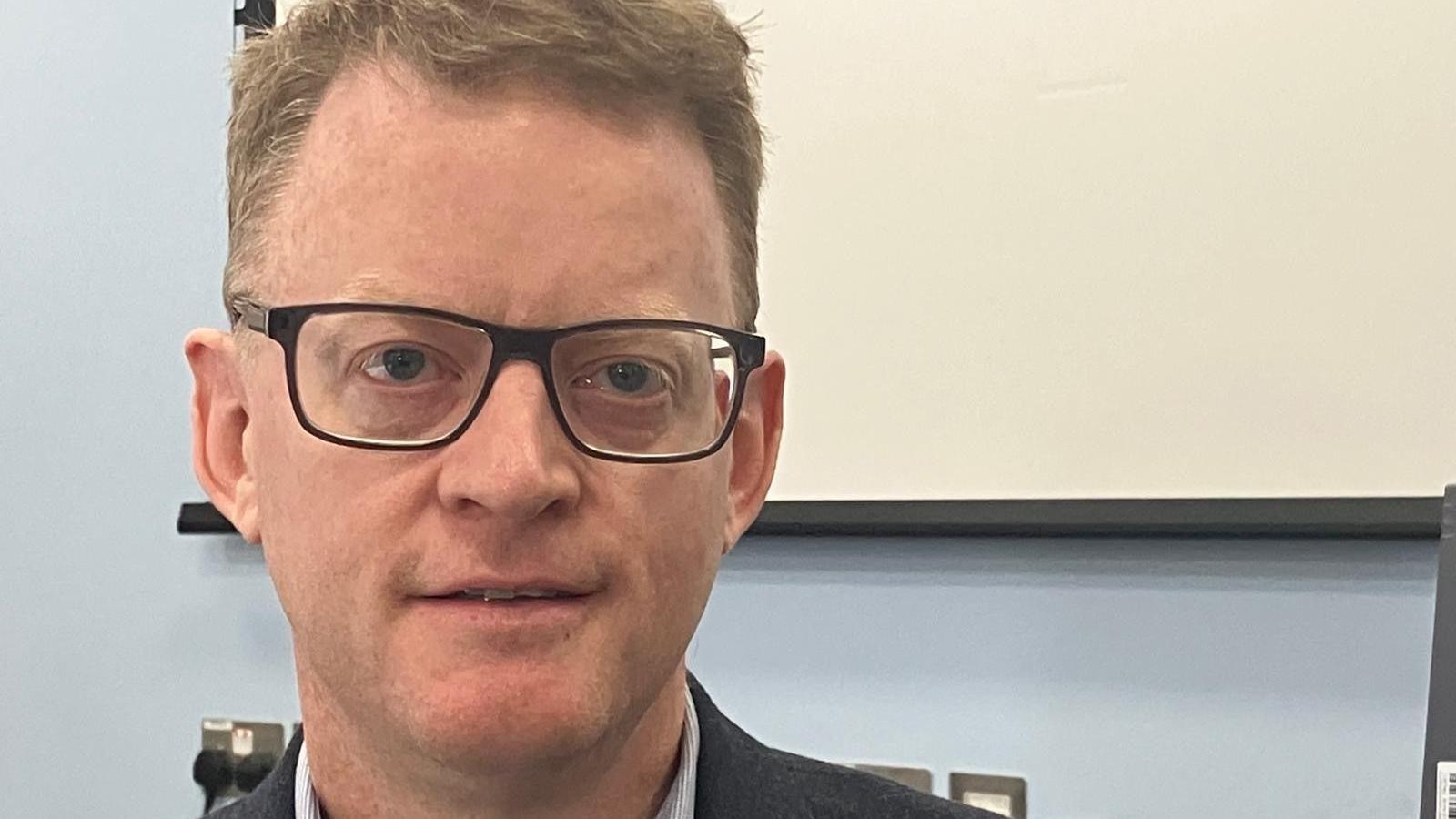
Prof Chris Fox said he was "probably looking at 2028" for the results of the trial
Caroline had to go through a series of tests before being accepted on to the trial and scans showed the tumour had "shrunk significantly" after the first treatment cycle.
After two more cycles, Caroline was operated on to prepare her for her stem cell transplant.
She said: "It was a tough three weeks in hospital and I was sick a lot, but by the third week I began to feel slightly better so that I could go home.
"The recovery from July to December was challenging and I was sick every day and lost a lot of weight.
"I had to take everything one day at a time, but when I finally heard the words that I was in remission, the difficult days no longer mattered.
"I knew the treatment was going to be hard and it was, but it was worth it because I'm here today."
Caroline is now driving again, undertaking a phased return to her work, and is taking part in Stand Up To Cancer's Sweat Every Day in November challenge.
Get in touch
Tell us which stories we should cover in Leicester
Follow BBC Leicester on Facebook, external, on X, external, or on Instagram, external. Send your story ideas to eastmidsnews@bbc.co.uk, external or via WhatsApp, external on 0808 100 2210.
- Published3 October
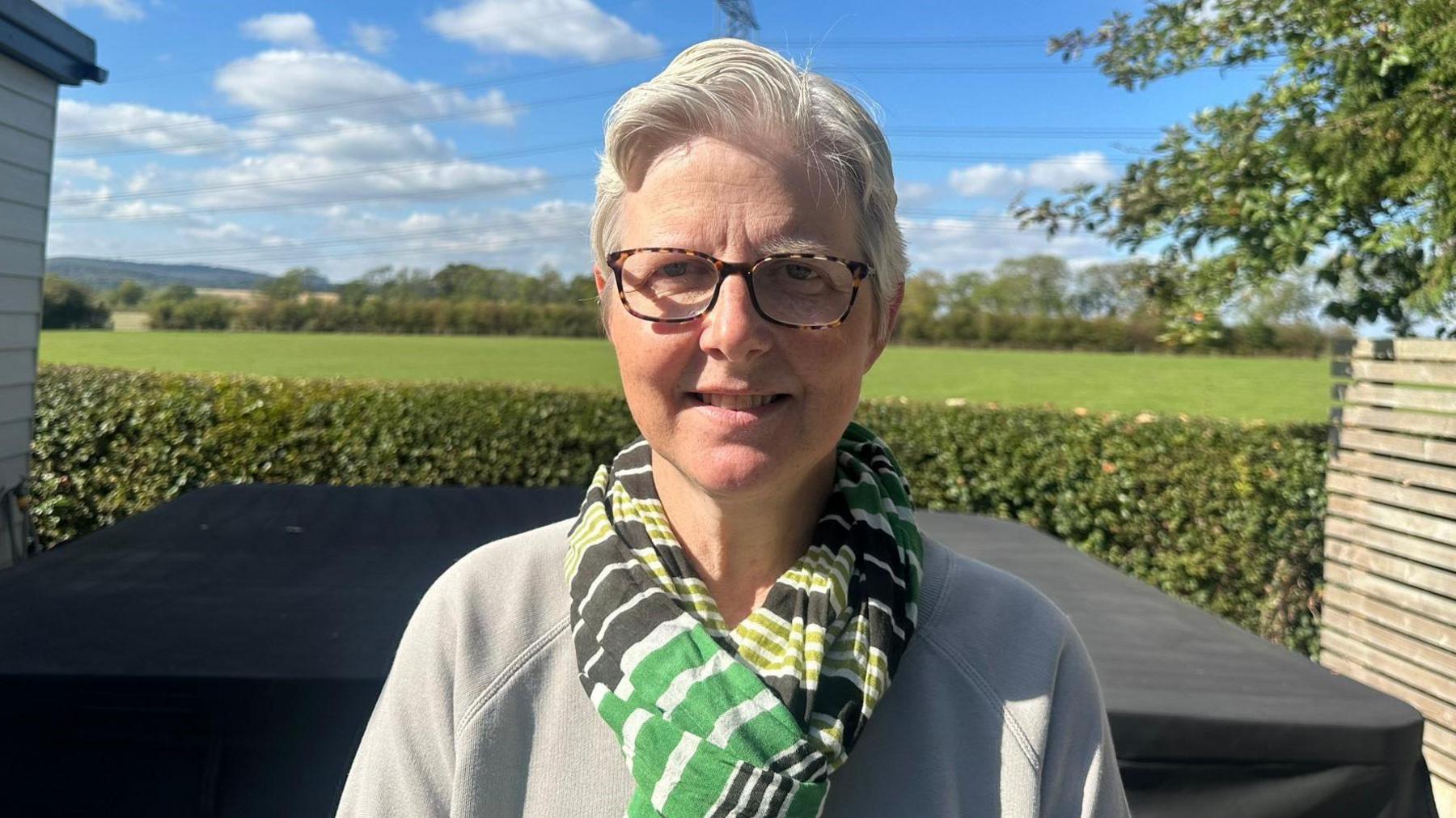
- Published30 June
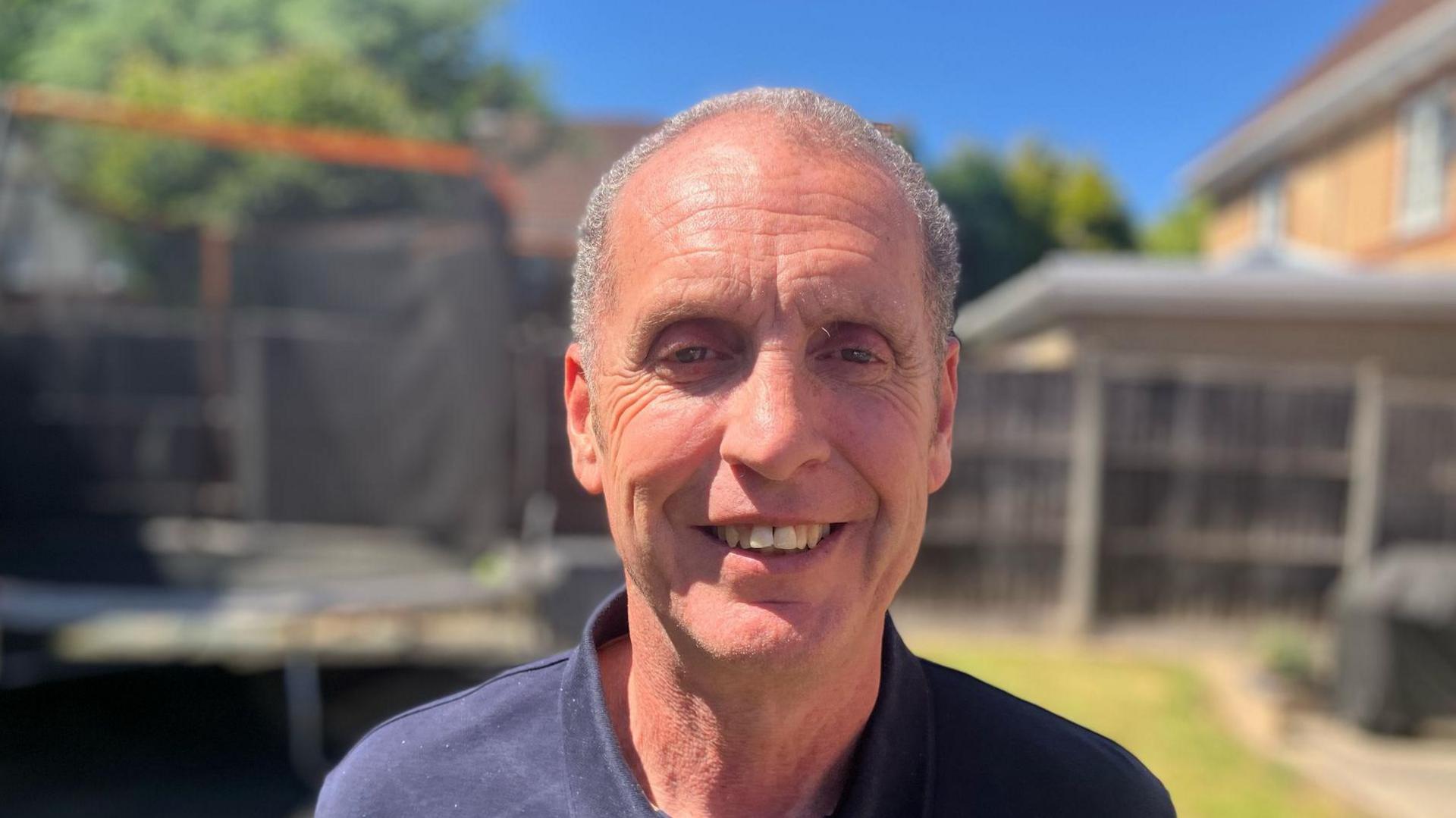
- Published30 January
